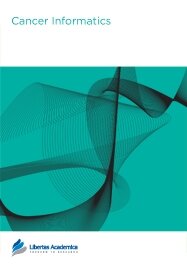

Publication Date: 18 Apr 2011
Type: Original Research
Journal: Cancer Informatics
Citation: Cancer Informatics 2011:10 109-120
doi: 10.4137/CIN.S6868

A core component in translational cancer research is biomarker discovery using gene expression profiling for clinical tumors. This is often based on cell line experiments; one population is sampled for inference in another. We disclose a semisupervised workflow focusing on binary (switch-like, bimodal) informative genes that are likely cancer relevant, to mitigate this non-statistical problem. Outlier detection is a key enabling technology of the workflow, and aids in identifying the focus genes.
We compare outlier detection techniques MOST, LSOSS, COPA, ORT, OS, and t-test, using a publicly available NSCLC dataset. Removing genes with Gaussian distribution is computationally efficient and matches MOST particularly well, while also COPA and OS pick prognostically relevant genes in their top ranks. Also our stability assessment is in favour of both MOST and COPA; the latter does not pair well with prefiltering for non-Gaussianity, but can handle data sets lacking non-cancer cases.
We provide R code for replicating our approach or extending it.
PDF (852.14 KB PDF FORMAT)
RIS citation (ENDNOTE, REFERENCE MANAGER, PROCITE, REFWORKS)
Supplementary Files 1 (49.08 KB ZIP FORMAT)
BibTex citation (BIBDESK, LATEX)
XML
PMC HTML


Compared with other journals we considered for publishing, Cancer Informatics provided extremely rapid but quality turnaround from draft submission to a flawlessly typeset final publication. Moreover, sharing the article is now as easy as sharing a link with no subscriptions required, and additional code and data files are equally accessible, supporting reproducible research. Because it has published many of our references we feel confident that our target readership must follow the journal. This is further ...

All authors are surveyed after their articles are published. Authors are asked to rate their experience in a variety of areas, and their responses help us to monitor our performance. Presented here are their responses in some key areas. No 'poor' or 'very poor' responses were received; these are represented in the 'other' category.See Our Results
Copyright © 2014 Libertas Academica Ltd (except open access articles and accompanying metadata and supplementary files.)
Facebook Google+ Twitter
Pinterest Tumblr YouTube